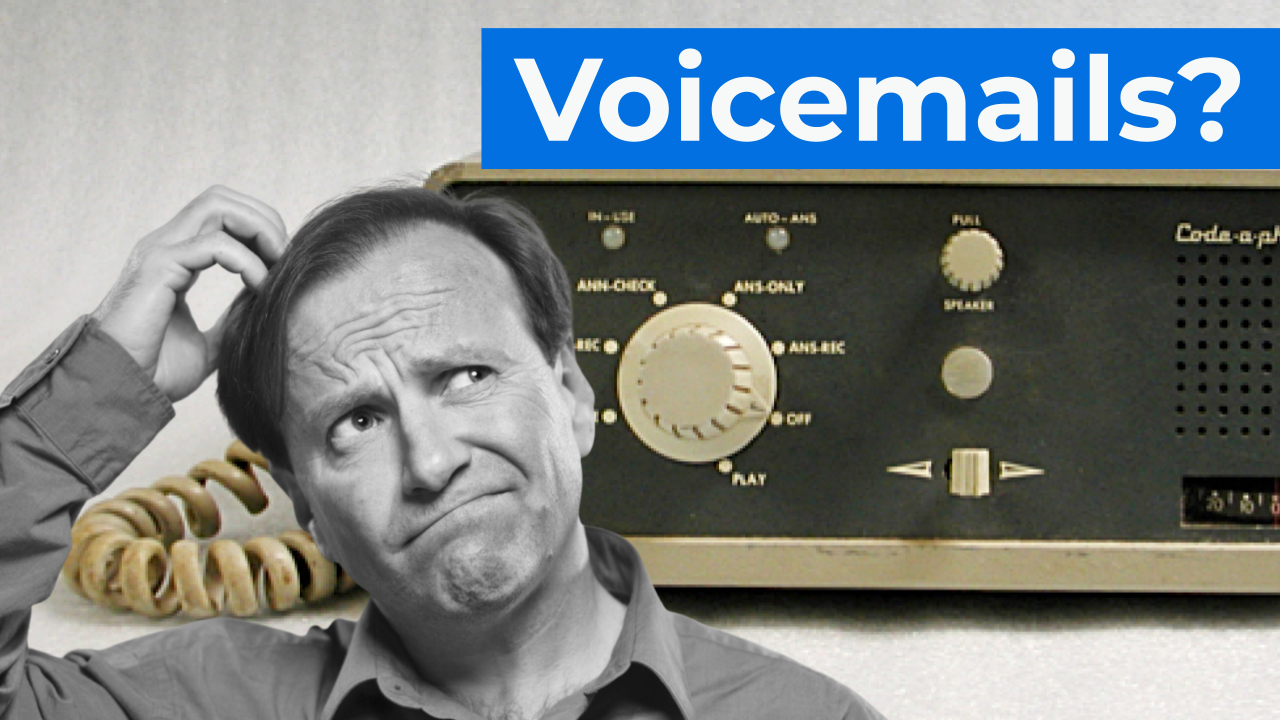Is it worth my time to leave voicemails?
Yes! Despite the common assumption that leaving voicemails is no longer effective, research suggests otherwise. Studies have shown that salespeople who leave voicemail messages have a higher conversion rate than those who don't.
Moreover, voicemails can help increase the answer rate for your organization, positively impacting your carrier metrics and leading to preferred carrier treatment. They also begin to build the rapport needed to establish trust between parties.
According to PEW research, 80% of Americans will not answer their phones to an unknown number. However, 67% of Americans say that they will check a voicemail if one is left. This means, leaving a voicemail message is a great way to convey the importance of the call, and increase the chances of the prospect answering next time or returning the call.
As one company reported, "I thought I was saving time by not leaving messages, but it's 2023, and prospects are becoming increasingly difficult to reach. I realized that if I wanted to regain control of my sales process, I had to start leaving messages. The goal of a sales voicemail is not necessarily to get a callback, but to be remembered."
What should I say when I leave a voicemail?
- Be brief but clear
Let's be real, people are increasingly impatient and don't want to listen to long emails or voicemails. So keep your voicemail concise. Around 30 seconds is great. Try to also be conscience of your pace. Most people tend to get nervous leaving a voicemail and end up rambling or speaking way too fast. So when in doubt, talk slower.
- Speak for transcribing
Not everyone will listen to your voicemail. Perhaps they are in a place where playing an audio file would be too disruptive to others or where they simply can't hear it. Instead, they will read the transcription of the call. Many voicemail systems automatically transcribe messages from audio to text and send them to users via SMS, email, or even within the voicemail app itself. So don't talk too fast or with too much jargon or people could get the wrong message.
- Tell them the next steps
Don't just let the recipient know what you want them to do "Call me back", but also let them know what your next steps will be if you don't hear from them. Something as simple as saying "I'll call you back in two days if I don't hear from you." shows you are committed to getting in touch with them and that you have a worthwhile message. It also dramatically increases their likelihood of answering future communications whether they be via call, test, or email.
Sure, sales is a number game, but it's also a game of trust. And those that leave voicemails tend to garner more trust with both the people they are calling and with the carriers delivering their calls. Ultimately leading to higher contact rates and conversions. And who doesn't want that?
